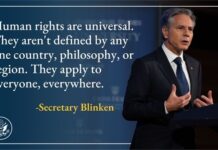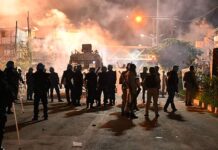Our ill-motivated political masters have so far been successful in deceiving many of us and keeping us engaged in unnecessary debates and fairy tales

- Our national myths can be different from the reality
It seems that we have been living with too many myths for the last 42 years or so, and efforts to demystify those myths have been few. If you ask someone how many people were killed during the 1971 liberation war, the instant answer may be three million. Or, the person answering your question may take a deep breath and tell you he is not quite sure.
BBC and The Economist reports would tell you that around 500,000 people were killed in the 1971 liberation struggle. The same was the case with the number of women abused, or overall casualties. Since Bangabandhu erroneously mentioned the number to be three million in a television interview, his followers have been living for four decades with a wrong figure.
Recently, we have seen Indian researchers and other international news networks coming up with much lower numbers than the ones our political seniors have been claiming. No matter how many people were killed, Bangladesh fought a valiant war against Pakistan and got its independence, and prospered. We all should be proud of this.
Who killed democracy in Bangladesh? Awami League stalwarts and Dhaka University professors might point fingers at BNP founder Ziaur Rahman. Reality tells us, when our father of the nation was brutally killed on August 15, 1975, there was no democracy in Bangladesh. The country had already been forced into one-party rule – Bangladesh Krishak Sramik Awami League (BAKSAL).
Who did compromise with the Muslim rulers in the Gulf, including those in Saudi Arabia? It was Bangabandhu Sheikh Mujib, who was thoughtful enough to find out the importance and synergy of the emerging Muslim strength available for our Muslim majority country. He did it even at the cost of his friendship with Tajuddin Ahmed.
Who hijacked the ballot boxes in 1973? Even today’s leaders like Nuh-ul Alam Lenin or Matia Chowdhury would answer: It was nobody other than Awami League hoodlums. Who said: “We don’t want rule of law, we want rule of Mujib”? Even Tofael Ahmed may tell you it was Fazlul Haque Moni.
Who said the skin of Sheikh Mujib was to be used for stitching shoes? Amir Hossain Amu might say it was today’s minister and erstwhile JSD leader Hasanul Haque Inu. If you don’t dare to ask these ministers now, go to a humble and soft speaking gentleman named Mujahidul Islam Selim, he should have an answer.
You hear every now and then that BNP wants to return Bangladesh to Pakistan. But nobody dares say it out loud. Bangladesh is an independent country. No matter who says what, thousands of Khaleda Zias can’t make Bangladesh into another Pakistan.
Ask any senior Pakistani. They don’t want Bangladesh back. Rather, they give a lot of credit to Bangladeshis for their success in poverty alleviation, women’s empowerment, and inclusive growth. Ironically, most of those shouting for upholding the spirit of the liberation war didn’t join the war.
A few of them connived with Pakistan occupying forces. They never realised that our martyrs dreamt of upholding democracy too. They dreamt of the right to vote and to select our own leaders through a peaceful and inclusive election. People want the trial of the war criminals, but not at the cost of democracy. People want to decide who should run this country on their own.
Now coming to the much-discussed anti-India campaign, it was military ruler Ershad who kept pointing fingers at India for all the plights of Bangladeshis. Ziaur Rahman wanted migration of the best practices whenever and wherever possible. Sadly, he gave a lot of leeway to Islamist forces, including Jamaat-e-Islami, for the sake of multi-party democracy.
People didn’t want this from the Z Force commander, and more importantly, from the person who made the announcement of our independence on behalf of our great leader Sheikh Mujib. How did people like Khondoker Mostak Ahmed succeed? Was it because Bangabandhu believed in his story of Indian excesses with regard to the Ganges water treaty and border disputes? After the sad killing of Bangabandhu, many of his colleagues joined Mostak too, which had nothing to do with Zia.
Ask any woman leader: Who should be blamed for the violence against women these days? While Muslim League Razakars or Jamaat’s al-Badr or al-Shams had proven engagement in the atrocities committed on our sisters and mothers in 1971, most of them would still point fingers at Jamaat or Hefazat or at least Islamist forces.
Ground realities may tell you different stories, and at times may put teachers, professionals, or civil society members in the dock for violence against women or keeping them in the corner. Social researchers would attribute this to social degradation, youth unemployment, the lack of legal enforcement, or corruption.
Our ill-motivated political masters have so far been successful in deceiving many of us and keeping us engaged in unnecessary debates and fairy tales. No doubt, we must always champion the causes of our liberation war, believe in the strength of people, and take the toiling masses forward through distributive justice.
But we also need to move on with the right campaign, the right direction, and no-nonsense attitude. We live in a globalised and integrated world now. Back-dated and illogical thinking can only take us to the past and keep us there. But our young generation does not want to go back, rather, they want empowerment through good education and scientific thinking.
Source: Dhaka Tribune









